How one writer became the core of early Apple II culture
Softalk magazine helped the idea of everyday computer entertainment—and games—to flourish.

In 1979, 39-year-old Margot Comstock, a freelance writer and editor, won $15,000 (around $62,000 today) on a game show called Password Plus. It was a key day for computer history, though no one, including Margot, knew that at the time.
Password Plus had nothing to do with computers, but that victory was the gateway to a series of incredible contributions to early home computer culture. With her prize money Comstock bought an Apple II and began exploring the creative potential of the PC in the form of Softalk magazine, which launched its first issue in September, 1980.
Comstock became a key figure in this specific subculture, so much that Doom's John Romero claims her nickname was "The Glue."
In the wake of Comstock's recent passing, Laine Nooney—noted Sierra historian—wrote a striking tribute that lays out her achievements with Softalk, which existed for just four years. The magazine channeled an earnest love for the Apple II and a tireless enthusiasm to make computing accessible to anyone; it was a cultural artifact that researchers (like Nooney, Kevin Driscoll and Kera Allen) believe helped to articulate the broader transformation of the niche computer hobbyist to the everyday computer user, thanks to its focus on "the Apple as an object of pleasure and curiosity." Softalk did much to push the Apple II as something that anyone could learn to use: the inaugural issue of the magazine explicitly stated that it was not for programmers. Nooney even noted how Richard Garriott referenced Comstock and her husband, Al Tommervik, as characters in the Ultima 2 town of Tommersville.
Softalk was free for Apple computer owners—the team distributed the magazine to "known" registered Apple owners, and encouraged folks to sign up with their Apple serial number. This was a huge factor in Softalk's strength of community, revolving around their popular Open Discussion letters section, which offers an eye-opening look at how and why people were using Apples back in the day. In the November 1980 installment of Open Discussion, one reader, Pete Helfrich of Fountain Valley CA, wrote in with a plea: he had seven kids and desperately needed suggestions for programs with "a lot of graphics and animation" to help teach them how to program. Less than two years later, Softalk ads would include bright, alluring ads for eduware from companies like Spinnaker (and a rather menacing ad for Plato educational programs).
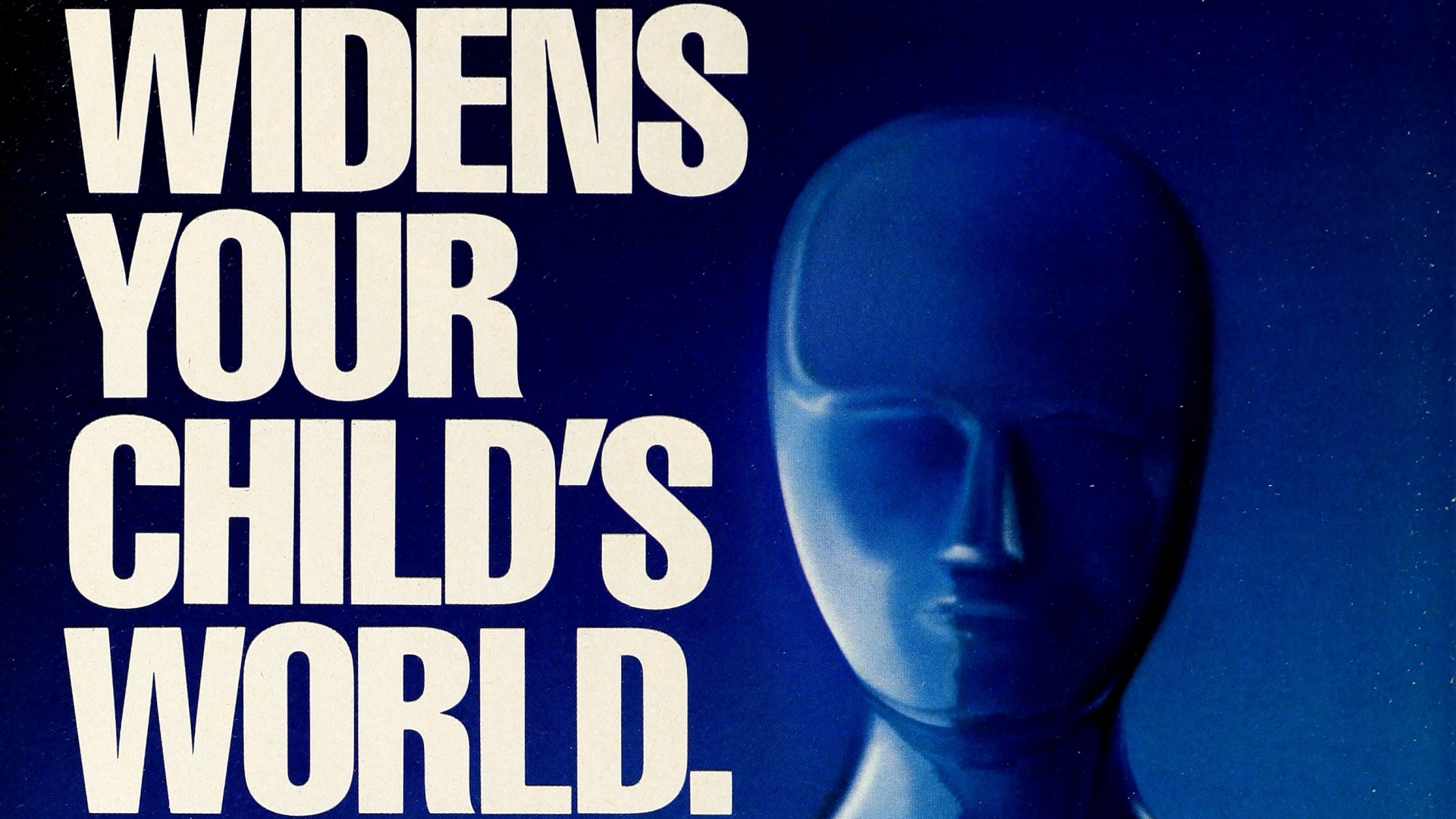
Poring over the earliest issues is a fascinating look at early advertisers for the Apple II community—a revealing way to understand what people were excited about well before the age of home dial-up and social media. At the time, game ads were the text-heavy domain of several game companies like On-Line Systems (before it became Sierra On-Line), Automated Simulations, and Strategic Simulations. Games by Automated Simulations were marketed as fun distractions from work—"slaving too long over a hot computer?" reads one full-page ad—complete with limited lifetime warranties, "no matter what happens to your cassette: the dog chewed it… you left it out in the rain... whatever." If only things were still so.
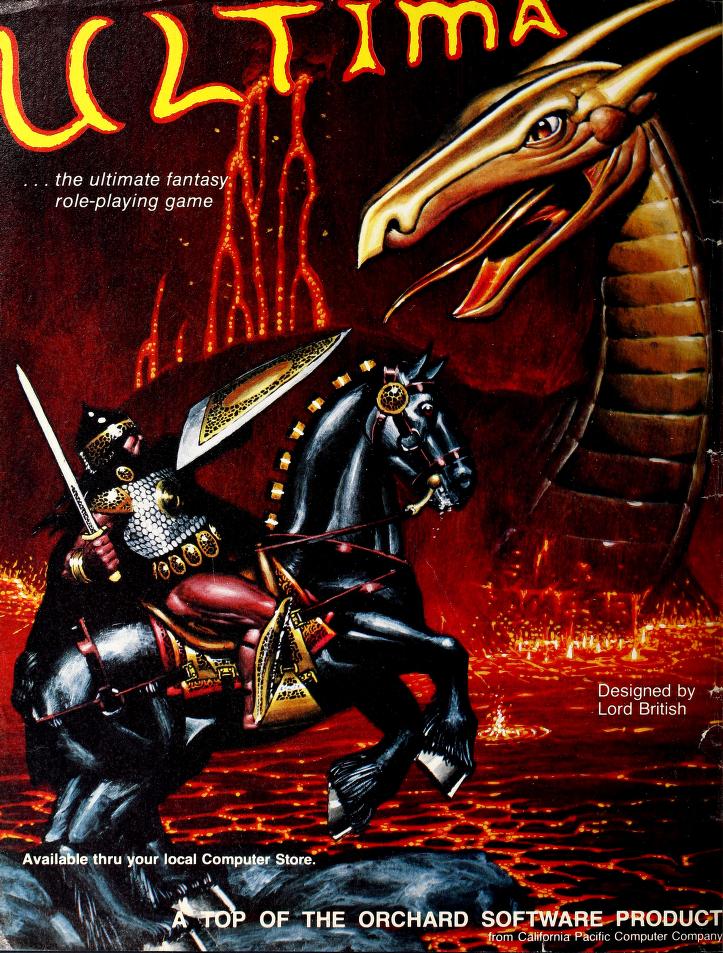
One of the 1981 issues opens with this incredible full-color ad for Ultima, another for Gorgon, and also features an ad for a fascinating old two-player game called Colorblind, which came with two sets of color goggles so each player could only see their own view on-screen "until that critical moment when the two antagonists come within line of sight of each other."
The biggest gaming news, reviews and hardware deals
Keep up to date with the most important stories and the best deals, as picked by the PC Gamer team.
The December 1982 issue has an ad that I find especially kooky, for a home control system called Waldo that worked with Apple II. It looked essentially like a very simple modern smart home system with a synthesized voice feature, something that I didn't really imagine existed in the 1980s. Besides helping to operate the lights and TV, some of its rather optimistic "future" features would also help you check the stock market, or warn inhabitants of fires and leaks. I couldn't find anything else on the company behind Waldo, but stumbling across its ad was like staring into the face of a very weird forgotten past I'd love to know more about.
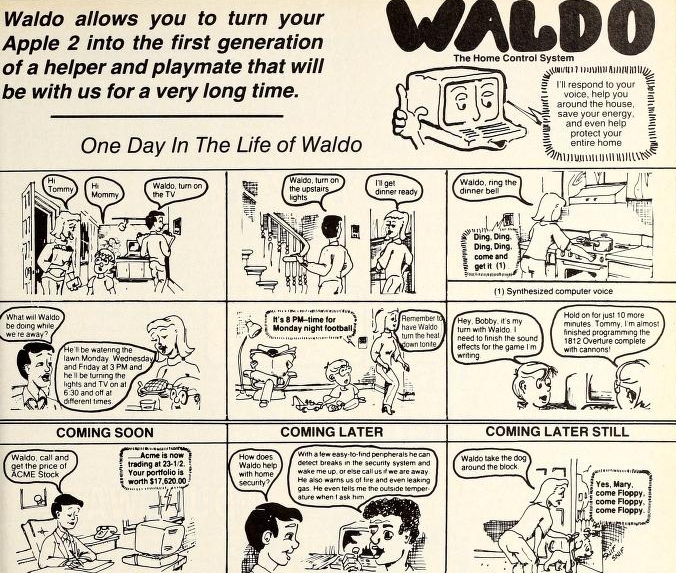
Where Softalk really shone was its human-centric coverage of the Apple II: how the humble computer played a part in synth music, disabled employment, human-dolphin communication research, photography, filmmaking, and of course, games. Softalk was far from being the only computer magazine to review games, of course, but Comstock's tone was uniquely thoughtful and personal; her "preview" of The Prisoner game (based on the cult TV show starring Patrick McGoohan), for instance, is a wonderfully direct invitation for readers to review the game and send proof that they've "escaped" the in-game Island. She said she wouldn't be looking at the proof, only passing it on directly to the publisher to avoid spoiling it for herself.
Comstock's feature on the early game network GameMaster is a fantastic community piece. GameMaster was a digital 39-room "mansion" where you could play backgammon or a trucking game called "Twelve Wheeler," explore a kitchen full of recipes, a greenhouse with gardening tips, and a photography room. Membership ran on a credit system that allowed you a certain amount of "house time," including game rules and a "mailbox" in the mailroom. Members could chat together in the parlor and reserve conference rooms for specific meetings. It sounds, rather suspiciously, like one of the earliest instances of an online multiplayer game or shared world, and it is in Softalk that I first learned of its existence.

Naturally the magazine also did profiles into game companies at the time like a 1981 cover story on war gaming company Strategic Simulations, whose best-selling game was Computer Bismarck. Eventually, Softalk even took over an On-Line Systems magazine called Softline dedicated to games. With Comstock also serving as editor, it ran thinkpieces, features, and in-depth discussions on everything from text parsers to Atari sound design. It covered LARPing at California's Renaissance Pleasure Faire, touching on the seemingly anachronistic presence of tech workers who loved learning a new "language," and the parallels between sports and team gameplay in videogames.
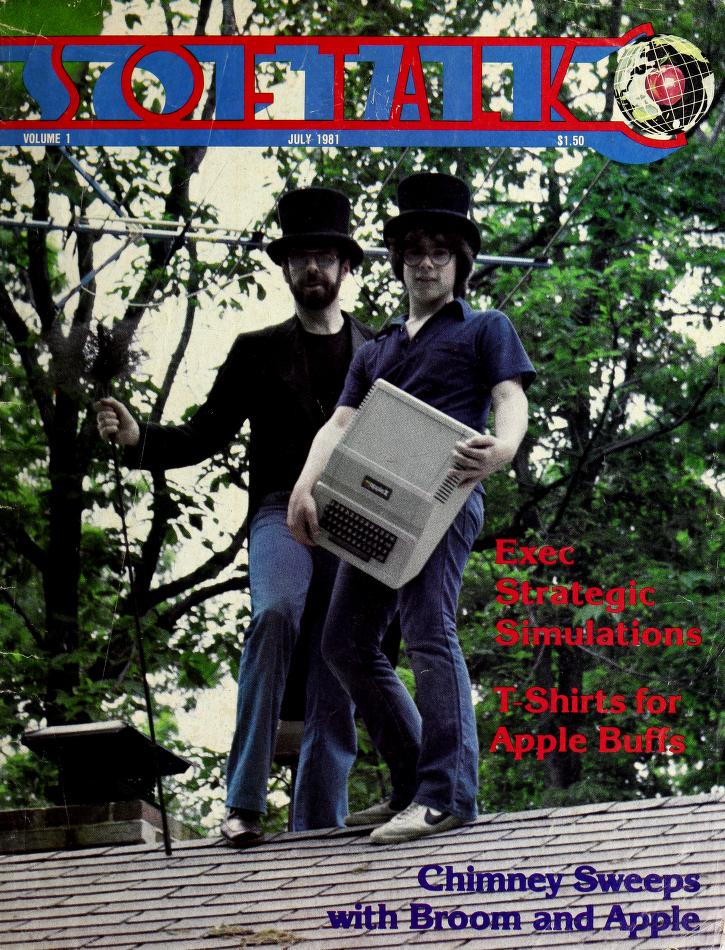
Given that computers were still a rather prohibitively expensive business in the '80s, in Softalk, Comstock fielded questions from readers who wanted to know why all Softalk reviews were "highly complimentary." "Especially with limited space, we believed that Apples (sic) users would rather learn about products they might want to buy than chuckle over the wittiest criticisms of something they might otherwise never consider", she replied. "What do the rest of our readers think?"
It is clear from perusing the readers' letters how present some of our contemporary issues—piracy, copy-protected software, emulation problems, prohibitive costs—were even when the consumer computing industry seemed much more loose and experimental (and far less corporatized) than it is today. Of course, there's also a guy who wrote in needing hints for Zork 2. It is admittedly hard not to feel a sense of rose-tinted nostalgia while flipping through the old magazine archives because this wholesome community vibe is rare to find in editorial spaces today; it's difficult not to read some of these stories and feel a tug of cynicism at where we've ended up.
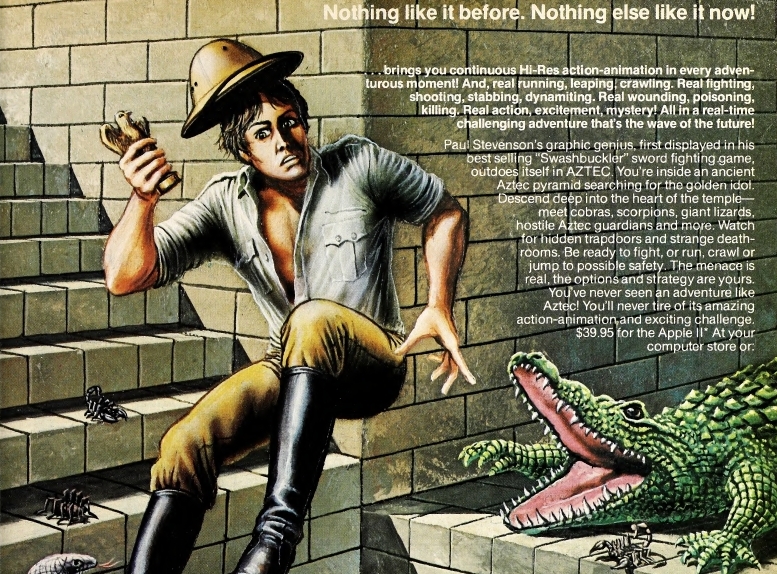
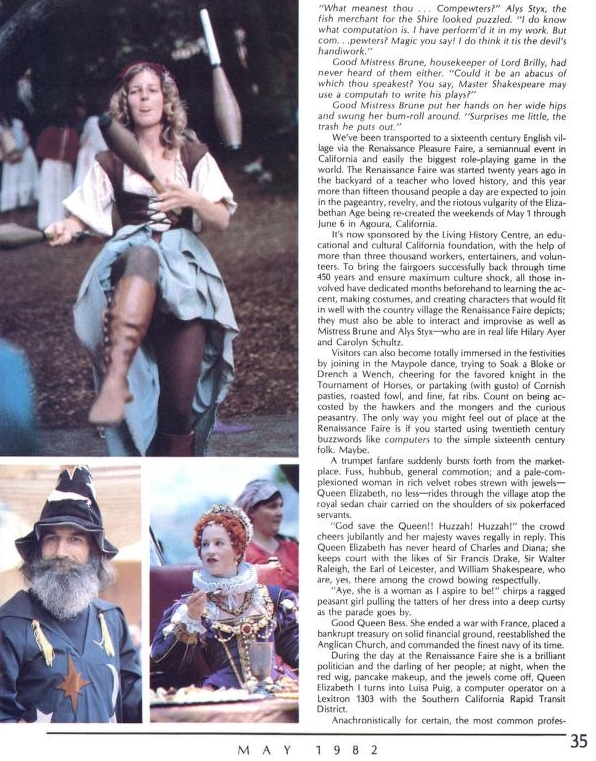
It's a must-read historical resource for anyone interested in how people first talked about PC games in broad, accessible language, and how Comstock fiercely connected the technological wonders of the computer (specifically, the Apple II) to a bigger social and cultural picture. (It's also a must-read to find priceless ads for stuff that never quite "made it," so to speak, like Waldo.)
Comstock's legacy, as long as Softalk is preserved and available to the public, is a legacy that valued the humans at the heart of computing and gaming, that strove to include people on the margins, and to maintain important conversations about accessibility. This is all stuff that seems fairly obvious to a 2022 reader, especially when we take a lot of shared knowledge about computers and games for granted today. But I find a gentle sense of hope and optimism in perusing old issues of Comstock's brainchild, in the enduring power of how people need connection and community to thrive, and the importance of maintaining a dialogue with the soft, intangible ways in which technology affects us all.
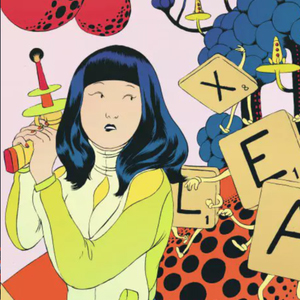
Alexis Ong is a freelance culture journalist based in Singapore, mostly focused on games, science fiction, weird tech, and internet culture. For PC Gamer Alexis has flexed her skills in internet archeology by profiling the original streamer and taking us back to 1997's groundbreaking all-women Quake tournament. When she can get away with it she spends her days writing about FMV games and point-and-click adventures, somehow ranking every single Sierra adventure and living to tell the tale.
In past lives Alexis has been a music journalist, a West Hollywood gym owner, and a professional TV watcher. You can find her work on other sites including The Verge, The Washington Post, Eurogamer and Tor.

